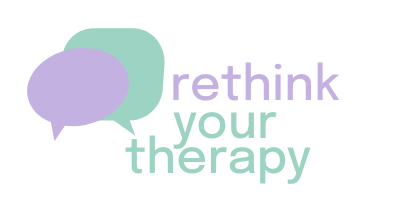People with mental health or stress issues are often fully aware of their own struggles. Many seek out therapy and other types of counseling directly, only to be faced with demands for payment before being seen and waitlists so long it almost seems more prudent to not bother at all.
Falling into this mentality is tempting but dangerous. As the world turns and the ice caps melt, it is far too easy to succumb to depression, anxiety, and other types of mental illness and despair that can be incredibly difficult to dig one’s self out from. Mental healthcare is a struggling industry due to an incredibly huge and growing amount of demand and very little supply. Mental health reform is not going to get off the ground anytime soon unless modern adaptive changes are made.
As a response to the growing need for mental health reform, online therapy has been growing in popularity and prominence for years now. As the abilities of the internet grow and multiply, tech-savvy professionals are building ways to blend the growing digital world with the physical world’s booming population and the difficulties in keeping up with the needs of humanity.
Online therapy has grown out of a need for accessible, affordable mental healthcare that does not demand a wait time of over a month and access to all financials. Rethink My Therapy is one of these online platforms dedicated to helping people through therapy.
Benefits of Online Therapy Through Rethink My Therapy and Others
The general benefits of using the internet to find psychiatric services have been briefly touched on above, but there are other significant benefits as well. These can include but are not limited to the following:
- Low cost
- No copays or extra costs
- Specialists in all 50 states
- Phone or video calls
- Transferable records
- Diagnostic screenings available to pinpoint issues
- Can stick with the same therapist or switch
- Quicker appointment availability
- Greater range of options
Cost is one of the most commonly referenced factors as to why many people avoid or delay seeking out therapy or psychiatric help. Even with insurance, copays for therapy visits can be up to hundreds of dollars per month, and when people in rural areas need help the cost is even higher due to travel expenses and childcare, if applicable. By the time the trip is made to the therapist’s office, there may be even more stresses created from the journey to therapy.
The same person in this situation who has to travel so far and spend so much gas money to access help for their mental health could save hundreds of dollars per month by taking advantage of their internet connection and the growing availability of therapy available on the internet.
Another major concern related to the costs of traditional therapy is the diagnostic period. If you don’t already have some sort of specific goal in mind as to what to talk to a professional about, it can take more than one session to fully pinpoint the problem and map out a course of action. With online programs like Rethink, however, it is common practice to have a flat monthly fee that covers all services available, or all services available in a certain type of package.
Specialists for psychiatric issues can be beyond difficult to see, especially for the aforementioned rural patients. With online services, however, access to specialists is much more available and even encouraged. Once you find a therapist, you can stick with the same one for every appointment if you want to continue working with them, or you can switch if you don’t feel like it’s a good fit.
Even if someone does not live in a rural area, they may want to take advantage of therapy over the internet due to issues they will then be able to improve on, such as social anxiety or agoraphobia. When and if these patients decide to go to a physical office, this type of therapy is a recognized type and so records can be sent to any primary care providers.
If the problem is the availability of appointments and the growing size of waitlists, these online options offer much shorter waiting times for appointments than traditional therapy. Where traditional therapy may require a wait time of a month or more, this kind of therapy is usually able to help people start finding relief within one or two weeks.
What Can the Rest of Us Do?
Even if you yourself don’t struggle with mental health issues, the likelihood is high that someone you know or even someone you love does struggle with them.
Everyone can help with mental health reform. Regardless of your age, abilities, or income level, the most important part of the initial waves of change is conversation. Mental health has been stigmatized throughout the world for centuries and as a result, people who could have otherwise thrived have lived in pain or even harmed themselves or others.
So what can we do?
To break any stigma, we must let that which is stigmatized be allowed to live openly in our society. Mental illness is as much of a health crisis as any recent fast-spreading disease, but the difference is in how seriously the sufferer is taken in each of these individual situations. When someone breaks a leg, the sympathy comes in wave after wave. When someone has a mental breakdown, it is spoken of with insulting humor or in muted whispers.
There will be no reform without conversation, and so to be a part of reforming mental health we have to be willing to talk about it. Even the sad, even the scary, even the most uncomfortable of subjects must be spoken of as freely and as openly as we speak of the common cold. Only then will we have true reform.

